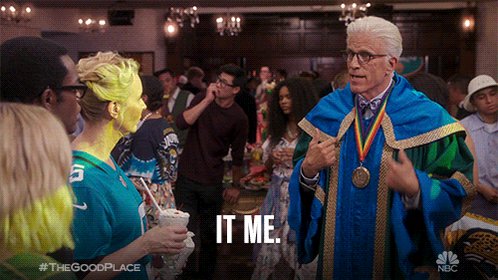Each of us have a self-concept – a sense of “me” that consists of our traits, goals, identities, physical appearance, roles, attitudes, and beliefs that we feel are characteristic of who we are. Some people have a more solid grasp of their self-concept than others. This is known as self-concept clarity: the extent to which someone’s sense of self is clear, coherent, internally consistent, and stable over time.

Are our self-concepts and our levels of self-concept clarity involved in our romantic relationships? Recent findings suggest that they are!
Psychological research has illuminated the roles that self-concept change (the alteration of the content of an individual’s self-concept) and self-concept clarity play in romantic relationships.
It has been found that after a breakup, people often undergo self-concept change (such as dying their hair, switching interests, and adopting new values), which can lead to a confused sense of self and emotional distress (Slotter et al., 2010).
The Good Place, a popular philosophical comedy set in the afterlife, portrays these findings expertly. Jason (a sweet, empty-headed boy) and Janet (a brilliant afterlife robot) were happy newlyweds. But then (without getting too deep into the nitty gritty details of the show’s plot), they got “rebooted” and Jason’s memory of their relationship was completely erased. Consequently, they were then single again. After this inadvertent breakup, Janet gained an understanding of love and emotion that she hadn’t had before – a profound example of self-concept change! Soon after, she began to glitch uncontrollably, which can be taken as indication of emotional distress as a result of her obscured sense of self. This example neatly illustrates Slotter et al. (2010)’s findings: a breakup can lead to self-concept change, which can reduce self-concept clarity and cause emotional distress.

Psychological research has also found that people with low self-concept clarity do not want to undergo self-concept change. Because of this, they do not support their partner’s attempts at personal growth due to their fear that they would experience change as well. Unfortunately, failing to support a partner’s pursuit of self-change predicts lower relationship quality for both couple members (Emery et al., 2018).
This figure depicts how the belief that a partner’s change will result in self-change mediates the association between low self-concept clarity and low support for a partner’s change (Emery et al., 2018).
Simply put, people who lack a clear sense of self often don’t want to change themselves, which causes them to show little support for their partner’s attempts at self-change, ultimately leading to less relationship satisfaction for them both.
The Good Place provides an excellent example of these findings as well!

We have ample reason to label Eleanor as possessing low self-concept clarity (especially since she has an avoidant attachment style, and avoidance is associated with lower self-concept clarity (Emery et al., 2018)). So, it makes sense that when Chidi had a major realization and was ready to make a big change in the final episodes of the show, Eleanor did not support him. Chidi postponed his desired change for Eleanor’s sake, but ultimately, Eleanor’s failure to support Chidi’s wishes led to each of them feeling unsatisfied. In summary, low self-concept clarity can lead someone to dislike the prospect of self-change, causing them to be unsupportive of their partner’s personal changes and lowering both of their relationship satisfaction.

Final takeaway? If you lack a strong sense of self, you may be inclined to stay the same and confine your partner to that rule as well. But if you’re able to overcome your aversion to change and can support your partner along their personal journey, both you and your partner will be in a better place 🙂
Emery, L. F., Gardner, W. L., Carswell, K. L., & Finkel, E. J. (2018). You Can’t See the Real Me: Attachment Avoidance, Self-Verification, and Self-Concept Clarity. Personality and Social Psychology Bulletin, 44(8), 1133-1146. https://doi.org/10.1177/0146167218760799
Emery, L. F., Gardner, W. L., Finkel, E. J., & Carswell, K. L. (2018). “You’ve Changed”: Low Self-Concept Clarity Predicts Lack of Support for Partner Change. Personality and Social Psychology Bulletin, 44(3), 318-331. https://doi.org/10.1177/0146167217739263
Slotter, E. B., Gardner, W. L., & Finkel, E. J. (2010). Who Am I Without You? The Influence of Romantic Breakup on the Self-Concept. Personality and Social Psychology Bulletin, 36(2), 147-160. https://doi.org/10.1177/0146167209352250

I LOVE this post Priya, particularly because I’m such a fan of The Good Place. Bringing in multiple relationships helps give a broader picture in the show. I had never really connected Janet in quite a way as this to “regular” humans–being a robot and all. But I had especially never thought of it as self-concept change, and her glitching as emotional distress. Laid out like this, though, really brings to light some of the nuances of her character that emerge as she goes through her own story arc throughout the show.
I really enjoyed this blog post. Despite never seeing The Good Place, I really appreciated your examples from the show and how they applied to our recent readings. Your final point does a really great job in tying everything together and indicating the importance of overcoming aversions to change which has negative effects on oneself and a partner.
I really enjoyed reading this post Priya! As a fan of The Good Place, it was really cool to see these concepts contextualized within the show’s characters, and it was also helpful for my understanding. One thing I still wonder about is why people with low self-concept clarity are averse to change. Is it because for these individuals, the possible outcomes of change are more uncertain, and therefore feel more scary? I’d be curious to see how this has repercussions for other areas of life outside of relationships, and if there’s any techniques that can be employed to strengthen one’s sense of self.